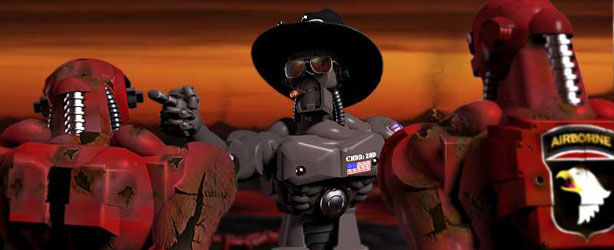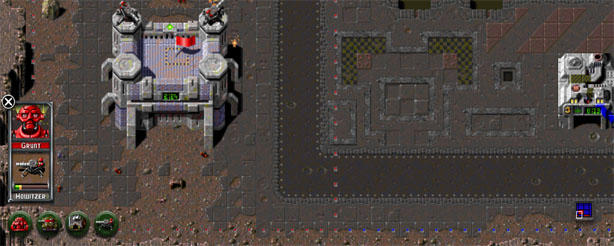
Bitmap Brothers - How The Industry Has Changed
BT: The hardware at our disposal is very different from how it was just ten years ago, let alone 20, but there's clearly still a market for games such as Speedball 2. How has the games market changed since the Bitmap Brothers' heyday?MM: Well, since then, I think the problem is that we're seeing fewer titles coming out, and any original IP is now on to version number whatever it is. We see a lot of IP that came from films or something like that – you know, as we've always had - but to be quite honest, unless a game's got a license it doesn't seem to do at all well these days. And, quite honestly, publishers aren't willing to bet on original IP any more, so for a developer like the Bitmap Brothers, which invented its own IP, the chances of getting a publishing deal are almost nonexistent.
BT: Why do you think it's so difficult to get original IP published now?
MM: It costs so much money to develop a game, and so much money has to go into marketing. We got an advance of £25,000 for the first Bitmap Brothers game, and we made a profit before we even got any royalties. Now, £25,000 would probably last a day. Then you've got the publisher who's got to do all the marketing, and they've got to put all the money into making the discs and paying Sony and so on their royalties –we're talking hundreds of thousands – in fact, millions - of pounds.
Now, the iPhone is a very different market – only 10 per cent of the titles are probably taking 90 per cent of the revenue, but at least the games are cheaper to develop than full price console games. But once again there's the price point – the games cost from 59p to around £4, and even then it takes a lot of sales to get your money back. But on the iPhone, both developers and independent people on their own could actually get a hit, because it's cheap to develop for.
BT: So there's no future IP coming in the Bitmap Brothers style?
MM: Well, you never know!
BT: If you had the means to develop any game with an unlimited budget, what would you do?
MM: Oh, that's a difficult one. Well, for one, I'd like to make Gods 2, but I suppose that's not original IP because that's a follow-on. I don't know, because it's a really difficult market. I'm involved with another company called Lightning Fish Games, and we deal mainly with motion stuff, which is very interesting – Kinect, the Wii – anything to do with motion.
BT: While we're on the subject of controllers, let's talk about Z: The Game. What changes have you had to make to the game and the user interface to make it work with touchscreen devices?
MM: Actually, in Z the controls are no different from using the mouse – you just point to the screen – your finger effectively becomes a mouse. We've had to tweak it to get it right on the iPhone, which obviously has a small screen, but on the iPad it's probably better than the original for controlling it.
BT: Have there been any other changes?
MM: On Z, no. We've got the original cutscenes – they're in low-res because we couldn't find the high-res assets after all this time, which is unusual because we usually have a backup of everything. We've reworked all the graphics into the new resolution too, but all the graphics are all still based on the original.
BT: You had quite a distinctive graphical style. What influenced the graphics style back in the Bitmap Brothers' heyday?
MM: Arcade machines. When we first started up, we played on a lot of arcade machines, so we wanted to get that sort of quality – that sort of almost metallic shininess that you get from arcade machines, which you didn't get on home computers at the time, you know, like the Amiga and the Atari ST. I suppose that's really where the style came from, but the whole thing about the Bitmaps was that we wanted whatever we developed to be the best. So we just generated this style I suppose.

MSI MPG Velox 100R Chassis Review
October 14 2021 | 15:04











Want to comment? Please log in.